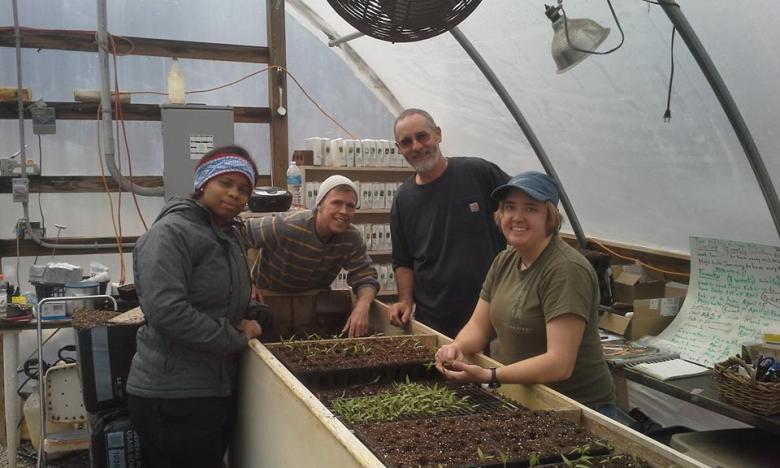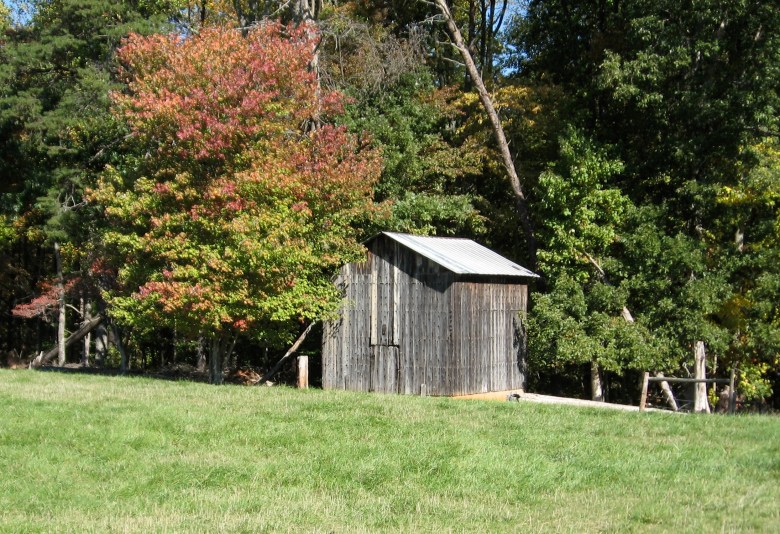Who We Are
Kenneth Vanhoy brings his experience as a board-certified geologist and his family tradition of farming that has been in his family for four generations. Ken left the corporate rat race to work in nature and heal the earth, and provide real food for real people. Ken loves plants, and his knowledge of soil science, varieties, and greenhouse operation make him an ace farmer. Say “hi” at the farmers market as you pick up your plants and vegetables; he will enjoy answering your gardening questions.
Laura Frazier, Ken’s wife is both an artist and a farmer. She combines her lifelong knowledge of animal husbandry with the skillful eyes and hands of an artist. She raises Gulf Coast Native and American Finnsheep, small tri-purpose sheep breeds that produce wool, meat, and milk. From their wool and wools she purchases from other farms, she makes yarn, sustainable wool dryer balls, clothing, and felted wool sculptures. Laura is available to consult regarding rotational grazing, parasite management, FAMACHA systems, electronet usage, You can learn more about what she does at her website. Laura’s sheep eat the leftover greens Ken produces, and the sheep improve Ken’s soil, creating a symbiotic system.

We are privileged to work with an awesome crew of part-timers, volunteers, and apprentices. Our past interns have gone on to start their own farms.
History
Rail Fence Farm was passed down generation to generation through the Lasley family in Belews Creek, NC. Typical of many farms at the turn of the 20th century, the land was badly eroded and in poor condition.
When Charles Lasely inherited the 40 acres from his father, he began the laborious task of healing the land. The most significant thing he did was to contour terrace all the cultivated fields with nothing more than a team of mules and a carpenter’s level to control storm water runoff and soil erosion. Today, these terraces continue to function as designed.
Bill Vanhoy, Charles’ grandson, has owned the farm since 1965. Bill grew up working on the farm alongside Charles from whom he learned good farm stewardship practices and a love for the land that is now present in Bill’s children and grandchildren. Today over half of the farm remains forested and is enrolled in Forsyth County’s Forest Conservation Program. The remaining acreage is under cultivation to produce vegetables and Christmas Trees or to provide hay and pasture for sheep

Methods
At Rail Fence Farm, we use an integrated farming system that works with the natural environment, beginning with building and maintaining healthy soil and eliminating the use of chemical fertilizers.
We accomplish this by adding composted manure from our sheep, OMRI approved animal-based fertilizers, composted leaf mulch from the City of Winston-Salem, wood ash from our wood stove, and cover crops that are incorporated back into the soil. These amendments, along with the practice of crop rotation provide all the nutrients and micro-organisms necessary to build soil and grow strong healthy plants, significantly decreasing diseases and insects on plants.
Hands and hoes, the farmer’s best defense against weeds, replace the conventional use of herbicides and fungicides. Naturally occurring, organically approved pesticides extracted from plants are used only if absolutely necessary to save a harvest. The result is sustainable, slow grown natural food that is healthy and tastes great.

